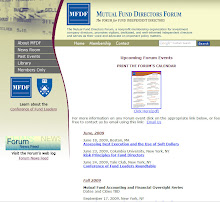The SEC first argues that the Seventh Circuit's approach, in which that court concluded that the market for funds is so competitive that section 36(b) requires only that the adviser not mislead the fund's board during the fee-setting process, undermines the intent of the statute:
By creating a 'fiduciary duty,' Congress incorporated the established meaning of that term; and under trust law, an agreement about the trustee's compensation is not binding if the agreement is unfair to the beneficiary. A disclosure-only test would effectively prevent Section 36(b) from providing the 'independent check' on compensation that is needed to vindicate the essential purposes of the statute.
The SEC then argues that a court should not act as a rate-setter, but should instead “should determine whether the adviser's fee is within the range of fees that arm's-length bargaining might have produced.” The SEC further argues that the traditional Gartenberg approach provides courts with an effective means of applying this test. Notably, however, the SEC argues that the factors traditionally associated with Gartenberg are non-exclusive, and that a court should consider all circumstances it sees as relevant to determining whether the fee could be the result of arm's-length bargaining.
In what is clearly one of the key issues in the case, the SEC also argues that the fees that a fund's adviser charges to non-fund clients for similar investment strategies are often highly relevant to determining whether the fees charged to the fund are acceptable. Specifically, the SEC argues that because there are disputes among economists as to whether competition among different advisers provides an appropriate check on fees, it argues that:
Because negotiations for such fees [with institutional clients] typically occur between independent parties, each of which is subject to competitive pressures, they may provide better evidence of the prices that arm's length bargaining would produce for the relevant services.
The SEC does observe that:
Of course, the fees an investment adviser charges unaffiliated clients will be relevant to the Section 36(b) analysis only to the extent that the adviser performs sufficiently comparable services in the two contexts.... [I]f [plaintiffs] show that [an adviser] provides comparable services to the two types of clients, a substantial disparity between the fees [the adviser] charges in the two contexts should be given significant weight in the Section 36(b) analysis....
Finally, in contrast to many of the other briefs that have been filed to date, the SEC does note that a court should take account of the effectiveness of the board in analyzing claims under section 36(b). While the SEC does not describe specifically how it believes that the board's decision to approve the contract should be viewed by the courts, it does state that:
Moreover, the extent to which the adviser and the board exchange and reflect upon information [like that described in Gartenberg] helps a court to evaluate how much 'consideration' to give a board's approval of an adviser's fee proposal. Although a board's approval is not 'controlling,' the boards receipt of necessary information and its careful consideration of the Gartenberg factors prior to approving compensation can be strong probative evidence that the adviser has complied with its fiduciary obligation.
Presumably, other parties – and, most importantly, the Supreme Court – will provide further analysis of the role that the board's approval of the advisory contract should play in a 36(b) lawsuit.
The full text of the SEC's amicus brief is available at: http://www.abanet.org/publiced/preview/briefs/pdfs/07-08/08-586_PetitionerAmCuUSA.pdf
To track when pleadings are filed with the Supreme Court in the the Jones v. Harris case, visit the case's docket page: http://origin.www.supremecourtus.gov/docket/08-586.htm
Related articles:
- "Jones v. Harris - Summary of Plaintiff's Brief," June 15, 2009
- "Gartenberg, Jones, Gallus: State of Play for Fund Advisory Fees," May 15, 2009
- "8th Circuit Hands Plaintiffs as Win in Fund Fee Case," April 10, 2009
- "Supreme Court Will Review Fund Fee Case," March 9, 2009
- "Petition to Watch: Jones v. Harris Associates," March 4, 2009
- "K&L Gates' Mark Perlow: 'The Seventh Circuit Rejects Gartenberg -- How Fund Advisers Might Respond'," October 10, 2008





